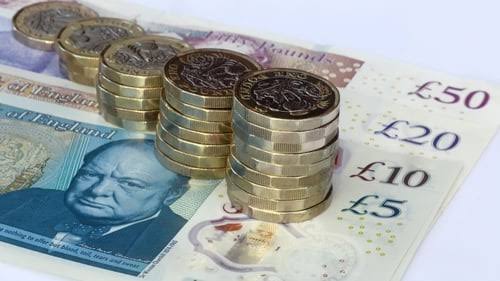
The UK economy has officially entered a recession after experiencing two consecutive quarters of negative economic growth in the latter half of 2023. The Office for National Statistics (ONS) reported that gross domestic product (GDP) shrank by 0.3% in the fourth quarter of 2023, following a contraction of 0.1% in the previous three months. This meets the technical definition of a recession.
The slump in the economy is attributed to elevated inflation and a cost-of-living crisis in the country. The recession announcement is expected to have a significant impact on Prime Minister Rishi Sunak, particularly as the government faces an upcoming general election. Sunak had previously pledged to prioritize economic growth as one of his top five priorities.
While all major sectors experienced a decline in the fourth quarter, including manufacturing, construction, and wholesale, the ONS noted that the overall economy was largely flat in 2023. Many economists believe that the recession is mild and may already be nearing its end, based on timely indicators.
The news of the recession coincides with two by-elections held on the same day. The Conservative Party, which had previously held strong support in Wellingborough and Kingswood, is concerned about losing ground in these areas.
Jeremy Hunt, the finance minister, recognized the impact of high inflation and interest rates on the economic downturn. However, he also expressed optimism about the economy turning a corner, citing forecasters’ predictions of strengthened growth, rising wages, reduced mortgage rates, and low unemployment.
On the other hand, the Labour Party criticized the government’s management of the economy, stating that Sunak’s growth promise was now in tatters. They argue that the Conservatives’ economic policies have led to a decline of over 14 years and left the country worse off.
The confirmation of the recession comes shortly after separate data showed that UK inflation remained at 4.0% in January, double the Bank of England’s target rate. Although this figure is slightly better than expected, it contributes to the ongoing cost-of-living crisis faced by many in the UK. The government aims to tackle high inflation as a top priority.
The Bank of England’s main interest rate is currently at a 16-year high of 5.25% as it seeks to curb inflation. However, rising interest rates also increase borrowing costs for individuals and businesses, further exacerbating the cost-of-living challenges in the country.
This latest recession follows a record contraction of 20.4% in the second quarter of 2020 due to the COVID-19 pandemic. December 2023 also saw a contraction in the third quarter, raising concerns of a potential recession ahead of the upcoming election in 2024.
